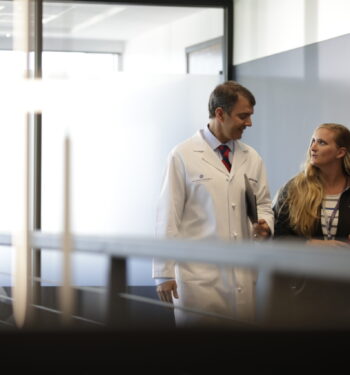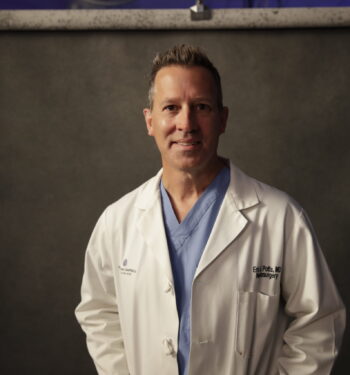October 16, 2017
Knowing more about your health and understanding it better can make a big difference. During the third week of October, National Health Education Week honors the role health education can play in improving public health.
So this week, we thought we’d look at a common patient question: why health issues like diabetes, obesity, and tobacco use might need to be addressed before having spine surgery.
Patients interested in spine surgery are sometimes surprised when their doctor requires lifestyle changes—such as quitting smoking, losing weight, or getting diabetes under control—before going ahead with an operation.
Patients should know this doesn’t come from a place of judgment, but rather concern. In recent years, doctors have bettered their understanding of how these factors affect patients before, during, and after spine surgery. We also want to protect our patients from potential risks by addressing these issues before we operate.
Diabetes
A recent study of the medical literature found that during and after spine surgery, patients with diabetes experienced more complications and longer hospital stays than patients without diabetes. They also experienced more readmissions and reoperations.
A similar study suggests that patients with poor glucose control may benefit by improving it before having surgery. Glucose control may be improved by insulin or other medications. Lifestyle routines such as regular exercise, a diabetes-healthy diet, and limited alcohol use will also make a difference.
Obesity
Obesity is linked with conditions that may suggest the need for spine surgery, such as disc degeneration, lower back pain, and sciatica. Unfortunately, obesity can also greatly increase risks and complications from spine surgery, especially for morbidly obese patients. Increased risks include prolonged operative and anesthesia times, greater blood loss during the operation, higher infection rate, and overall poorer outcomes.
The good news? Weight loss itself can reduce back pain and lessen the need for surgery. The ideal treatment would be through lifestyle changes to diet and exercise. And if weight loss alone doesn’t get rid of the pain, patients who get their BMI below morbidly obese levels tend to have less risk and more successful outcomes after spine surgery.
Bariatric (weight loss) surgery can be a good option for those who need to lose weight for their overall health. But some common side effects of bariatric surgery—those related to bone health—can increase risk of fracture or other complications from spine surgery.
Tobacco Use
Tobacco use is hard on your health in many ways, and not just your lungs and heart. In spine surgery, nicotine is the chief troublemaker. It makes spine surgery riskier and more difficult by reducing blood flow, slowing bone healing, and increasing the risks of surgical complications due to infection.
The mental and physical effects of nicotine withdrawal can be a challenge. But quitting tobacco improves your health and well-being—and the benefits start as little as 20 minutes after your last use. Long-term, you’ll not only be a much better candidate for spine surgery, you’ll also reduce your risk of heart disease, stroke, and lung cancer.
And by quitting smoking, you may find you have more energy for exercise. By exercising, you may reduce your withdrawal symptoms. It’s what experts call “a virtuous cycle.”
The Big Picture
At Goodman Campbell, your brain, spine, and nervous system are part of a larger picture of overall health—one we can help to address in many ways, both surgical and non-surgical. When we do operate, we want our patients to be prepared for the best possible outcome.
Pain and immobility are serious issues for many of our patients. While we always want to help, patient safety and long-term health are our first concerns. Our mission is to give each of our patients the best chance for healing and recovery. To find out how we can help, call 888-225-5464 to schedule an appointment.



